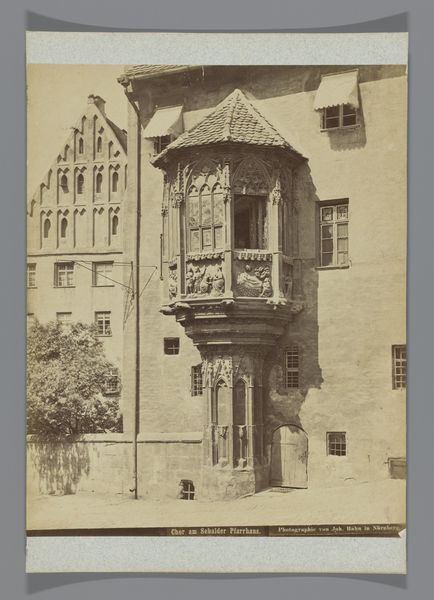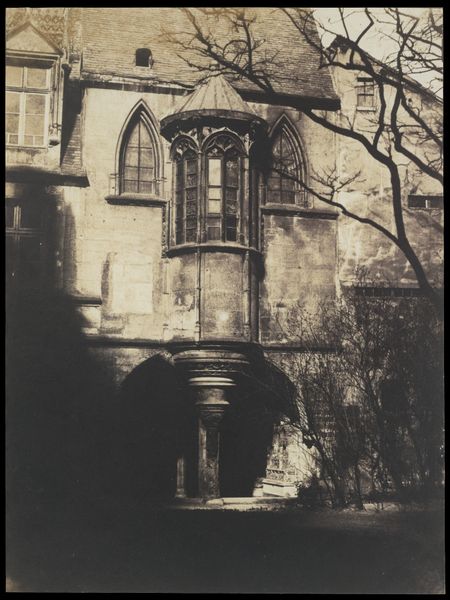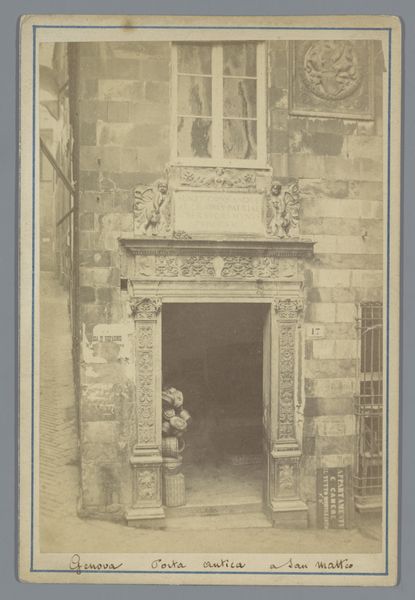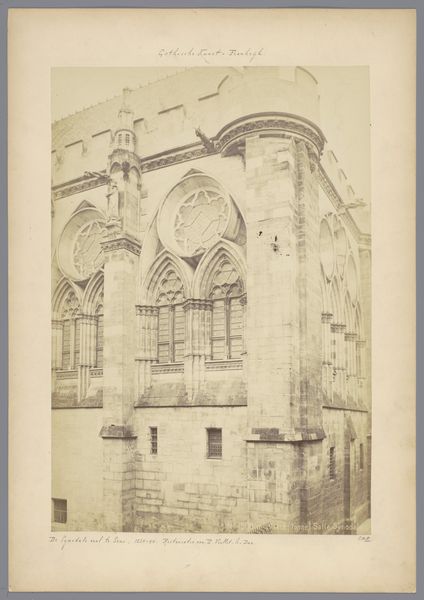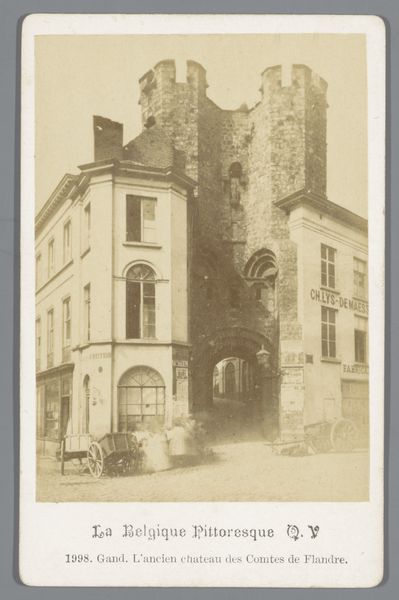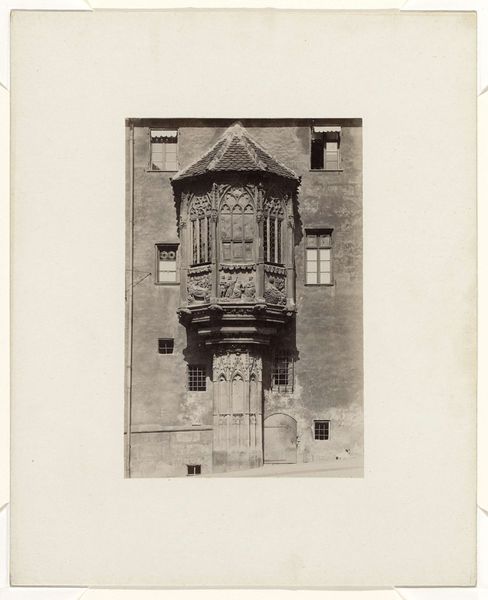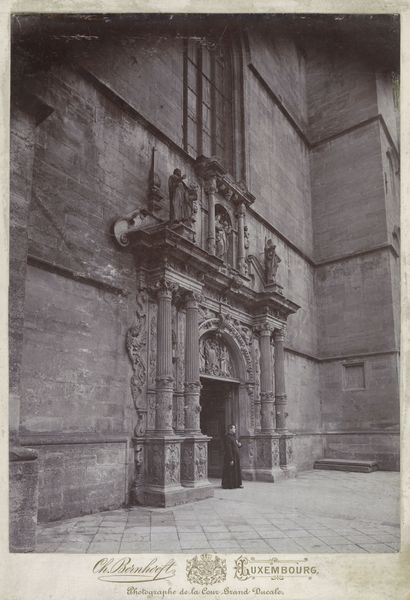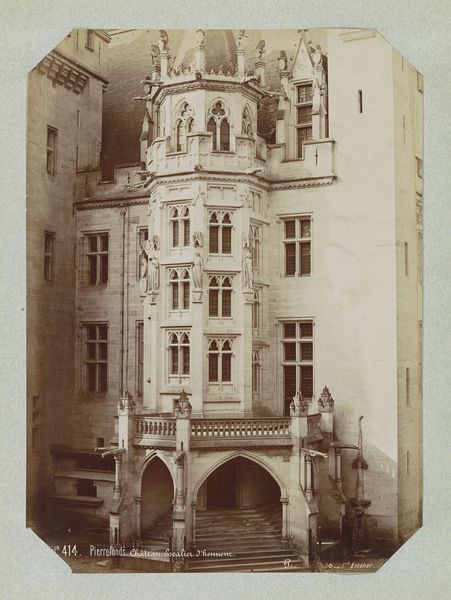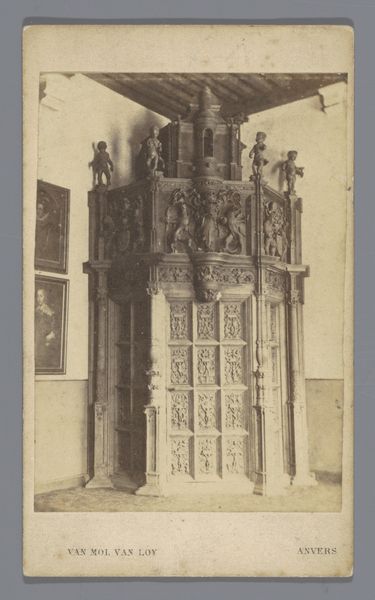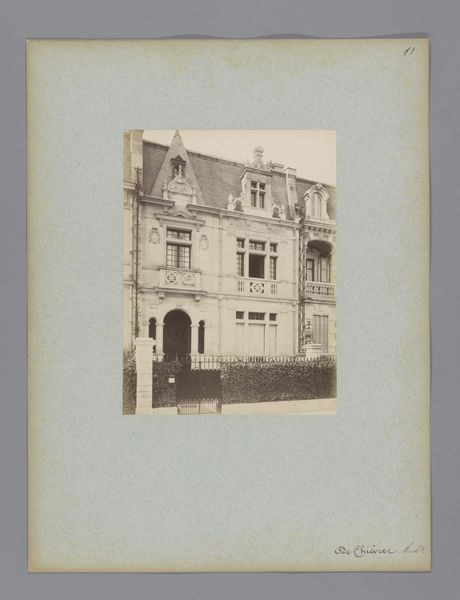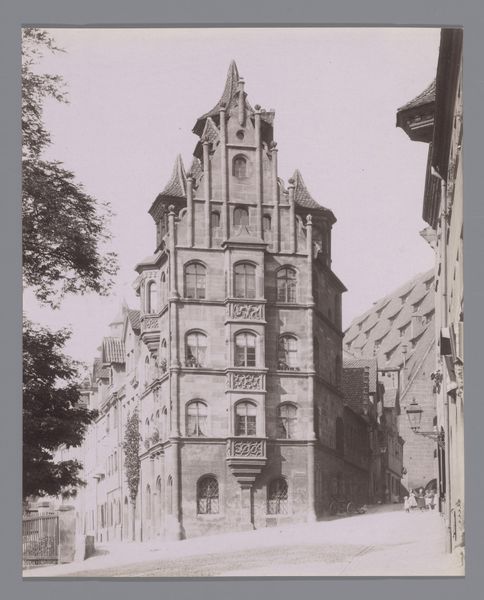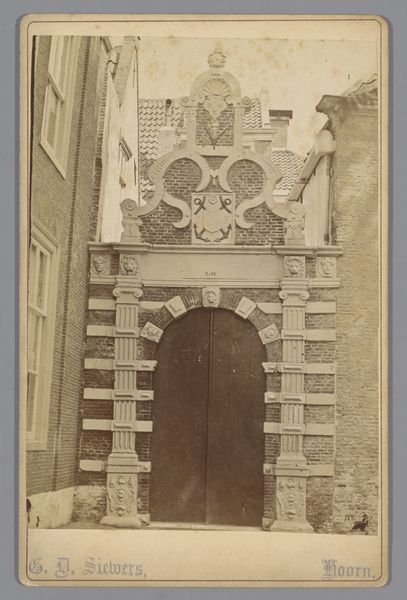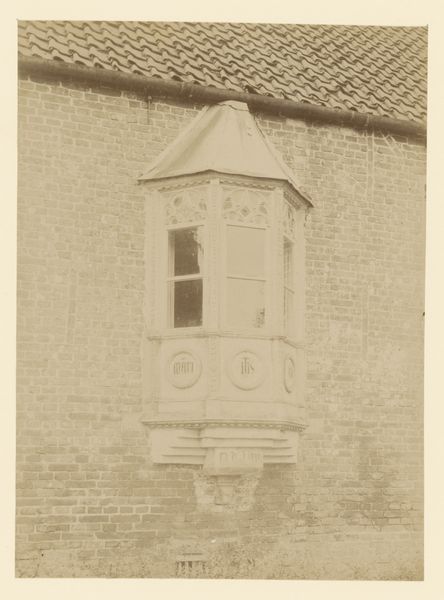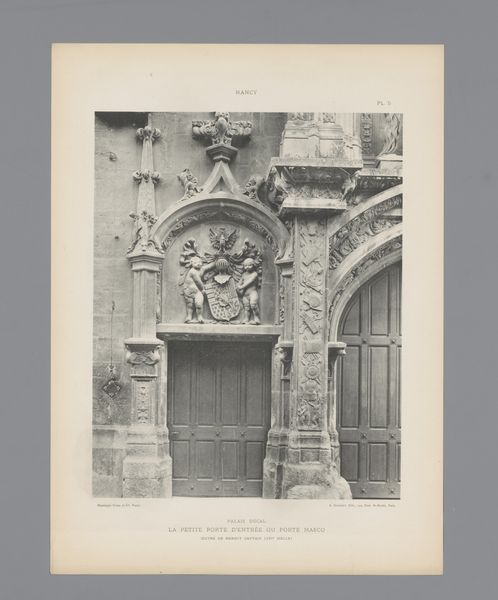
photography, architecture
#
medieval
#
landscape
#
street-photography
#
photography
#
architecture
#
statue
Dimensions: height 210 mm, width 166 mm, height 405 mm, width 305 mm
Copyright: Rijks Museum: Open Domain
Curator: Welcome! Today, we're looking at a photograph taken by Ferdinand Schmidt around 1895, titled "Erker met een Bijbelse voorstelling, Neurenberg," or "Bay Window with a Biblical Scene, Nuremberg." It's part of the Rijksmuseum collection. Editor: Immediately, I feel like I've stepped back in time. The intricate details of that bay window—it’s like a stage set built right onto the building! It draws the eye immediately with that dark medieval aesthetic. Curator: It's fascinating how Schmidt captures this slice of late 19th-century Nuremberg while evoking a much earlier era. The choice of photography as a medium to document medieval architecture underscores the evolving relationship between the past and the present. Editor: You're right, there is a kind of ghostliness to it all. It's like seeing history presented with new technology. I love how the sunlight catches some of those upper windows. I'd love to know the stories inside! It’s more than a historical document; it has almost fairytale-like magic to it, right? Curator: Precisely. These historical photos had purpose beyond pure documentarian intentions, and they would function differently for varying groups viewing the same artifact: Tourist postcards showing European architectural wonders became available and popular during the exact moment Schmidt was alive, catering to and creating at once a broader market interested in aesthetics beyond paintings and other such accepted pieces. It became the photographic 'view,' which played a major role in shaping cultural perception. Editor: Yes, but seeing the small hints of daily life too— the window shades. The photograph shows life unfolding. Curator: This makes us reflect on the historical consciousness of the time and on what parts of society can do the active archiving and interpretation of history to the masses. Photography made this more accessible to the broader public than ever before. Editor: I will remember how a medium becomes just as important as the message within! Thank you!
Comments
No comments
Be the first to comment and join the conversation on the ultimate creative platform.
